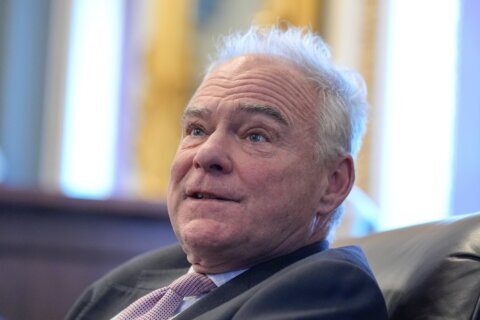Vermont Sen. Bernie Sanders took aim at pharmaceutical companies on Sunday over upcoming price hikes for COVID-19 vaccines and high prescription drug prices more broadly, telling “Face the Nation” that he believes there is room for bipartisanship to bring down costs for working class Americans.
The independent senator recently called on Moderna’s chief executive officer Stéphane Bancel to testify before the Senate Health, Education, Labor and Pensions (HELP) Committee, which he chairs. Sanders called the hearing after the company suggested it would quadruple the price of COVID-19 vaccines once the shots transition to the private market.
On Sunday, Sanders noted that U.S. gave Moderna billions of dollars to develop its vaccine. U.S. officials have said stockpiles of government-bought vaccines could run out by this summer.
“What happens after the government stockpile of the vaccine expires? These guys say, we’re going to quadruple the price of the vaccine,” Sanders said. “Truth is, [the] pharmaceutical industry is enormously greedy, charging us outrageously, uncontrollably high prices. We’ve got to deal with that, as chairman of the relevant committee, I intend to do what I can.”
Last week, Bancel agreed to testify before the Senate HELP committee during a hearing in March. One day later, Moderna said it would develop a program to ensure that uninsured and underinsured people can receive the vaccines at no cost. The vaccines will also remain free to those with insurance, as required by the Affordable Care Act. Pfizer and BioNTech have also confirmed their plans to hike vaccine prices to at least $110 per dose, which is more than triple the cost per shot that the Biden administration paid for a bulk purchase of COVID-19 boosters in the summer of 2022.
Sanders said on Sunday that members of the HELP committee “want to take a look at” Moderna’s patient assistance program and called it “a step in the right direction.” Still, he underscored the need for decisive action in Congress as pharmaceutical companies continue to initiate price hikes that often make health care and prescription medications unaffordable and inaccessible.
The senator, whose upcoming book “It’s OK to Be Angry about Capitalism” examines the growing divide between the wealthy and the working class, noted that “one out of four people in American cannot afford … the drugs that their doctors prescribe,” while roughly two-thirds are living paycheck to paycheck. Sanders additionally pointed to stark disparities in cost for the same medications in countries with public health systems, like Canada, compared with the U.S.
“You tell me why we pay 10 times more for some drugs that are sold in the United States compared to say to Canada or to other countries, while year after year, the pharmaceutical industry makes tens of billions of dollars in profits, pays their CEOs exorbitant salaries,” Sanders said.
“So of course, we want the drug companies to do the research and development,” he continued. “By the way, taxpayers of this country spent $45 billion a year through the NIH to help with that research and development, including Moderna and the vaccine.”
When asked if he sees avenues for bipartisan agreement on prescription drug costs in Congress, Sanders responded, “Yes, I do.”
He cited polling of Republicans that showed high prescription drug costs were “a major priority they were concerned with,” and said he believes laws like the Inflation Reduction Act, as well as legislative proposals, can form “the basis for bipartisan work.” The Inflation Reduction Act, which President Biden signed into law in August of last year, reformed how Medicare sets drug prices. Advocates have said it could act as a guide and predecessor for further, broader legislation regulating the cost of prescription drugs.
“So I think we have the basis for bipartisan work, to tell the pharmaceutical industry that they really have got to stop ripping off the American people. A number of ways you could do it,” Sanders said on Sunday. “The Inflation Reduction Act started by having Medicare negotiate prices with the pharmaceutical industry. Doesn’t kick in for a few years, I think we should expedite that.
“Number two, of all people, my good friend, Donald Trump, all right, who I disagree with on everything, had the idea that maybe Medicare should not pay prices higher than the average of what countries around the rest of the world are paying. That’s a good idea and we want to pursue that as well,” he continued. “And there’s the concept of reimportation. … That simply says if you can buy a drug in Canada, same drug but one-tenth of the price, passes FDA specifications, it should be sold in this country at a lower price.







